Humans
Sign up for our newsletter
We summarize the week's scientific breakthroughs every Thursday.
-
 Humans
HumansAncient horse hunts challenge ideas of ‘modern’ human behavior
An archaeological site in Germany suggests communal hunting and complex thinking emerged earlier in human evolution than once thought.
By Bruce Bower -
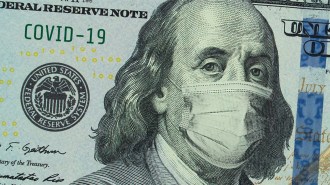 Health & Medicine
Health & MedicineClinical trials face uncertain futures amid Trump cuts
The Trump administration has reportedly disrupted over 100 clinical trials. Science News spoke to researchers about the impacts on four of them.
-
 Health & Medicine
Health & MedicineA messed-up body clock could be a bigger problem than lack of sleep
For a good night of sleep, consider getting your circadian rhythm back in sync with the sun. Here’s how to do it.
By Sujata Gupta -
 Health & Medicine
Health & MedicineA drug for heavy metal poisoning may double as a snakebite treatment
An initial clinical trial in Kenya found no safety concerns, a first step toward testing unithiol as a treatment for venomous snakebites in people.
-
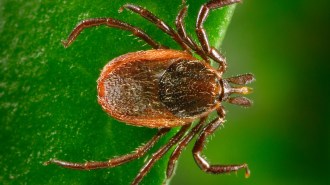 Health & Medicine
Health & MedicineThree U.S. tick species may cause a mysterious red meat allergy
Two cases of alpha-gal syndrome suggest that the lone star tick isn’t the only species in the United States capable of triggering an allergy to red meat.
By Meghan Rosen -
 Animals
AnimalsSnakes are often the villains. A new book gives them a fair shake
From demon to danger noodle, human ideas about snakes can be as contradictory as the creatures themselves. In Slither, Stephen S. Hall challenges our serpent stereotypes.
-
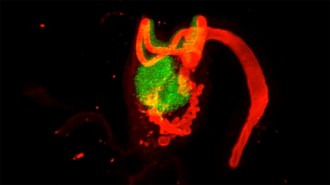 Health & Medicine
Health & MedicineAn overlooked organ may help the ovary function
No longer considered functionless, the “rediscovered” rete ovarii may be crucial for understanding “unexplainable” infertility and ovarian disorders.
-
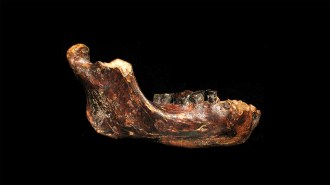 Anthropology
AnthropologyDenisovans inhabited Taiwan, new fossil evidence suggests
An expanding geographic range for these close Neandertal relatives leaves Denisovans' evolutionary status uncertain.
By Bruce Bower -
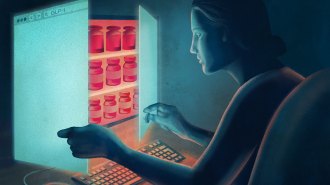 Health & Medicine
Health & MedicineA shadowy market for weight-loss drugs has emerged online
People are buying semaglutide and tirzepatide, the key ingredients in Ozempic and Zepbound, from unconventional sources. Doctors have safety concerns.
By Meghan Rosen -
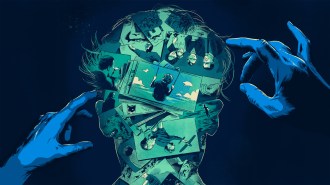 Neuroscience
NeuroscienceMemory manipulation is the stuff of sci-fi. Someday it could be real
Experiments point to how scientists can strengthen or weaken memories, which may eventually lead to treatments for Alzheimer’s disease or PTSD.
-
 Climate
ClimateA lush, green Arabian Desert may have once linked Africa and Asia
Mineral formations in caves reveal recurring periods of humidity in the Arabian Desert over the last 8 million years.
-
 Archaeology
ArchaeologyStone Age hunter-gatherers may have been surprisingly skilled seafarers
New archaeological finds in Malta add to an emerging theory that early Stone Age humans cruised the open seas.